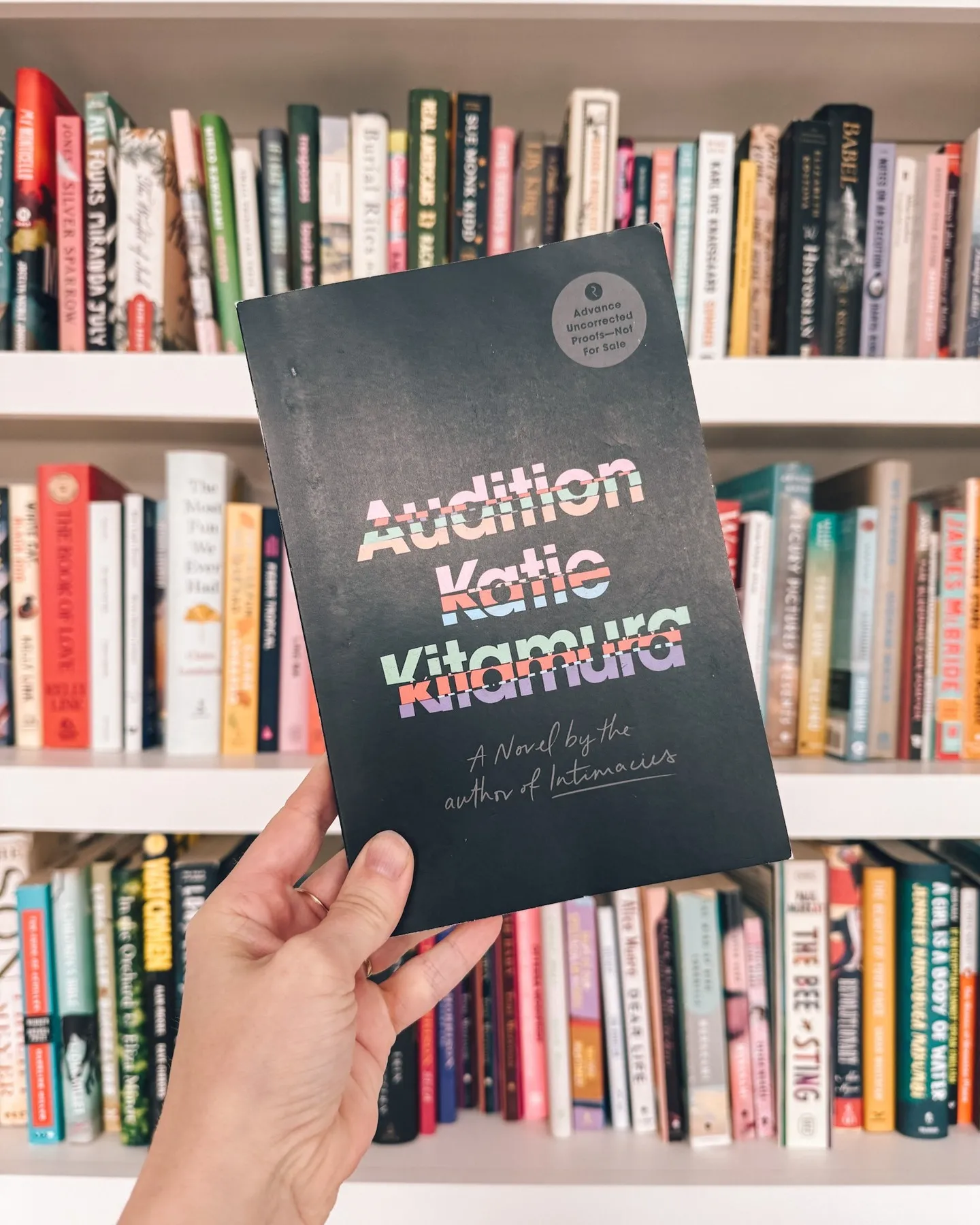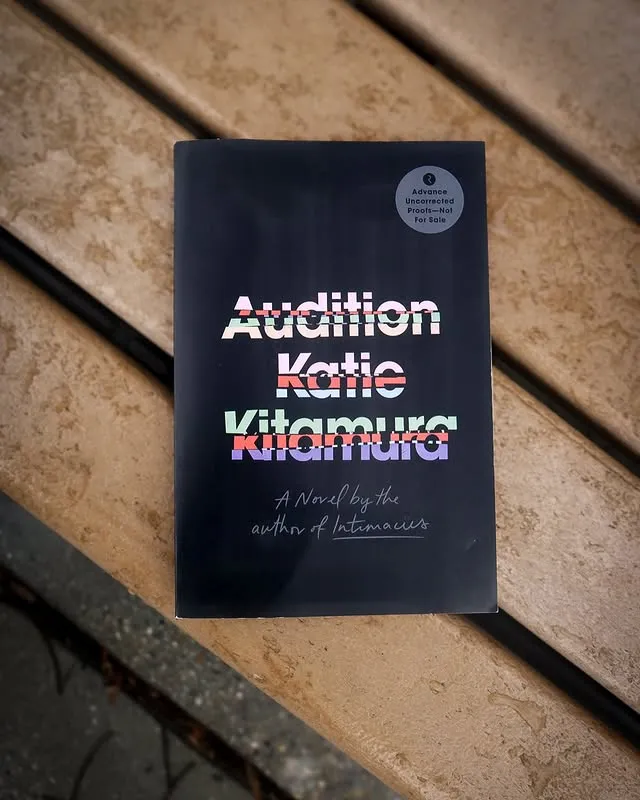Audition by Katie Kitamura is a novel that defies conventional storytelling, weaving a narrative that thrives on ambiguity and absence. Centered on an unnamed actress navigating relationships and a mysterious play, the book explores themes of identity, performance, and the elusive nature of truth. With a career marked by critically acclaimed works like A Separation and Intimacies, Kitamura brings her signature precision to this tale, crafting a world where emotions flicker in the gaps left by withheld details.
A Curtain Rises on Absence
The novel opens in a stark Financial District restaurant, a setting so nondescript it feels like a stage before the props arrive. The narrator, a respected middle-aged actress, sits across from Xavier, a college student whose connection to her remains unclear. Kitamura’s prose is sharp yet restrained, every word carrying a subtle charge. When Xavier watches her “with a hunger that sat too close to the surface,” I felt a jolt of curiosity—what bound these two? The scene crackles with tension, amplified by the arrival of the narrator’s husband, Tomas, who enters and retreats like a ghost, his presence stirring unease without explanation.
What struck me most was the absence of the play at the story’s heart. Unlike novels like Jane Austen’s Mansfield Park or Isabella Hammad’s Enter Ghost, where performances mirror inner dramas, Audition keeps its theater in shadow. We learn nothing of the play’s plot, characters, or setting—only that it’s a star vehicle for the narrator. At first, this felt like a tease, but as I read on, I saw it as a deliberate choice. The play’s emptiness became a canvas for the narrator’s own uncertainty, urging me to focus on her internal stage rather than an external script. It’s a risky move, one that set the tone for a novel that thrives on what’s unsaid.

Kitamura’s Craft: A Master of Gaps
Kitamura, with her Ph.D. in American literature and role as an NYU creative writing professor, writes with a precision that feels almost surgical. Her earlier novels toyed with absence—A Separation left a husband just out of reach, Intimacies danced around an unnamed warlord’s crimes—but Audition pushes further. The settings here are spare: a tasteful West Village apartment, a coffee shop, that blank restaurant. I found myself craving more texture, especially from the acting world. A brief scene at a post-performance dinner, where the narrator is sharp-tongued and withdrawn, hinted at her craft’s toll, but such moments were fleeting. Yet, this sparseness grew on me—it mirrored the narrator’s detachment, making every emotion feel like a flare in the dark.
The first-person narration pulled me into the actress’s mind, a place of sharp observation and frequent missteps. Kitamura has called this perspective a “mode of speculation,” and I felt that keenly. When the narrator catches Xavier mimicking her gestures—like a “downcast exhalation” she suspects he stole from her performances—I was struck by the betrayal in such a small act. It sparked anger in her, a surge I could almost feel, as if he’d crossed an invisible line. These moments of quiet intensity kept me hooked, even when the story’s vagueness tested my patience.
Relationships in Flux
The heart of Audition beats in its relationships, each one a shifting puzzle. Early on, Xavier reveals he believes the narrator might be his mother, citing an interview where she mentioned giving up a child. Her response—that she had an abortion, not a child—felt firm yet shaky, and I couldn’t shake a nagging doubt. Did she doubt herself too? When the narrative later pivots, imagining them as mother and son, I was swept into a disorienting whirl. Was this real? A dream? Kitamura leaves it unanswered, and I found that ambiguity thrilling, like watching a scene shift mid-performance.
Tomas, the narrator’s art historian husband, added another layer of tension. Their marriage is a delicate dance, all polite words and unspoken fears. When he asks if she’s cheating again, the question landed like a spotlight, revealing a past I hadn’t seen coming. I felt her indignation when she thinks, “I realized that I was being handled by Tomas,” her sense of being maneuvered in her own life. The arrival of Xavier as a maybe-son upends their balance, leading to a raw, cathartic scene that broke the novel’s restraint. It was messy, human, and deeply satisfying, a moment where the masks slipped.
Wrestling with the Unseen
Kitamura’s refusal to pin down her characters or their truths is both the novel’s strength and its challenge. The narrator prides herself on reading others but often misjudges, and I shared her jolt of realization when the story she tells—about herself, Xavier, Tomas—starts to fray. It’s unsettling to follow a narrative that feels solid, only to watch it dissolve, but I found it exhilarating too. The novel asks: Can emotion exist without stable characters? I think it can, and Kitamura proves it, conjuring feelings that linger despite the gaps.
Still, the novel’s chill sometimes left me wanting warmth. Unlike A Separation, with its vivid Greek hotel, or Intimacies, with its courtroom pulse, Audition feels stripped bare. The acting world, which I hoped would shine, stays in the wings. I longed to see the narrator lose herself in a role, to feel the stage’s pull, but those glimpses were scarce. The focus on sterile spaces—apartments, cafes—amplified the isolation, which I suspect was the point, but it made me hungry for more connection, more life.
The Theater of Family
One line stopped me cold: the idea that a family might be a “shared delusion, a mutual construction.” It’s a haunting thought, and I found myself nodding at its truth. We all play parts—spouse, parent, child—sometimes without questioning the script. In Audition, the narrator grapples with what it means to be a wife, a mother, an actress, and I felt the weight of her search. Kitamura doesn’t resolve it, but she doesn’t need to—the question itself is enough, lingering like an echo after the curtain falls.
The novel’s thrills come in quiet shocks: Tomas’s question reframing the narrator, the family’s eruption under Xavier’s shadow. These moments hit hard because they feel so human, so fragile. I didn’t always know who these people were to each other, but their longing, fear, and need to connect reached me. Kitamura conjures emotion from absence, a feat I couldn’t help but admire.
A Final Bow For Audition by Katie Kitamura
Reading Audition was like performing without a script, each page a step into the unknown. It’s not a novel that hands you answers or ties things neatly—it trusts you to sit with the questions, to find meaning in the silences. For me, that was its magic. Katie Kitamura has crafted a story as elusive as a whisper, yet as sharp as a stage light. If you’re drawn to books that challenge you to question identity, performance, and truth, Audition will leave you thinking long after the last page. It’s a quiet triumph, one I’m grateful to have experienced.

